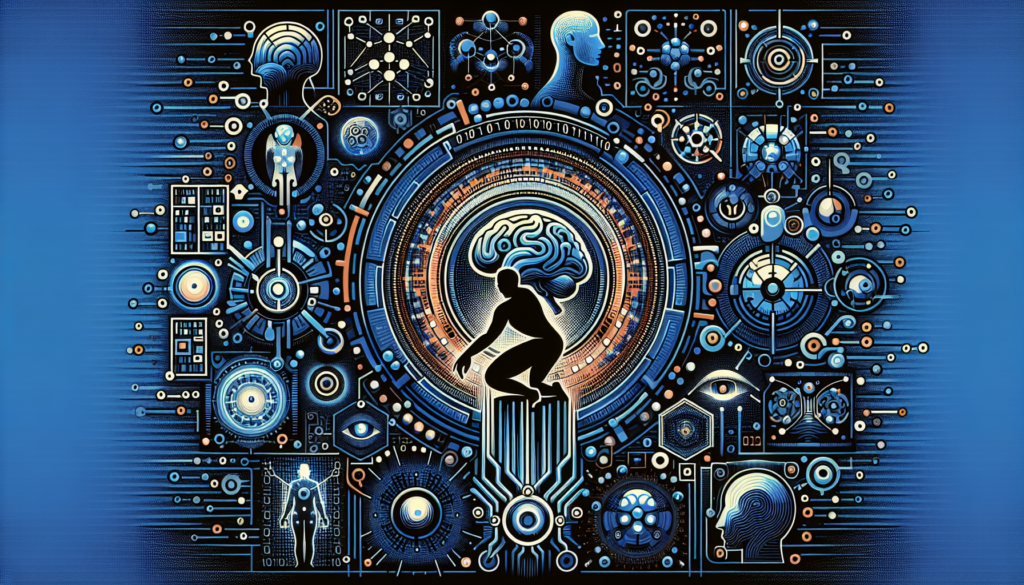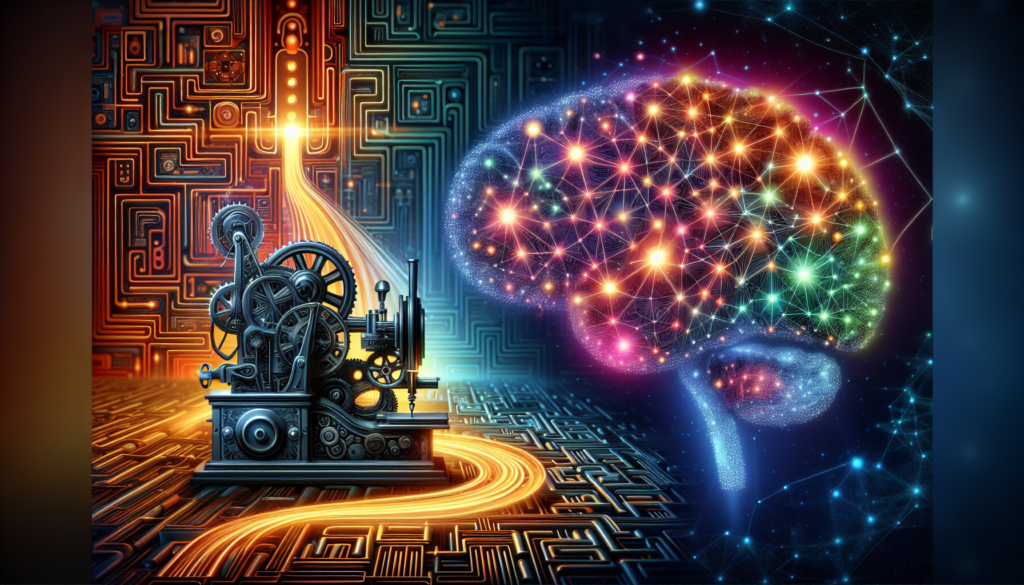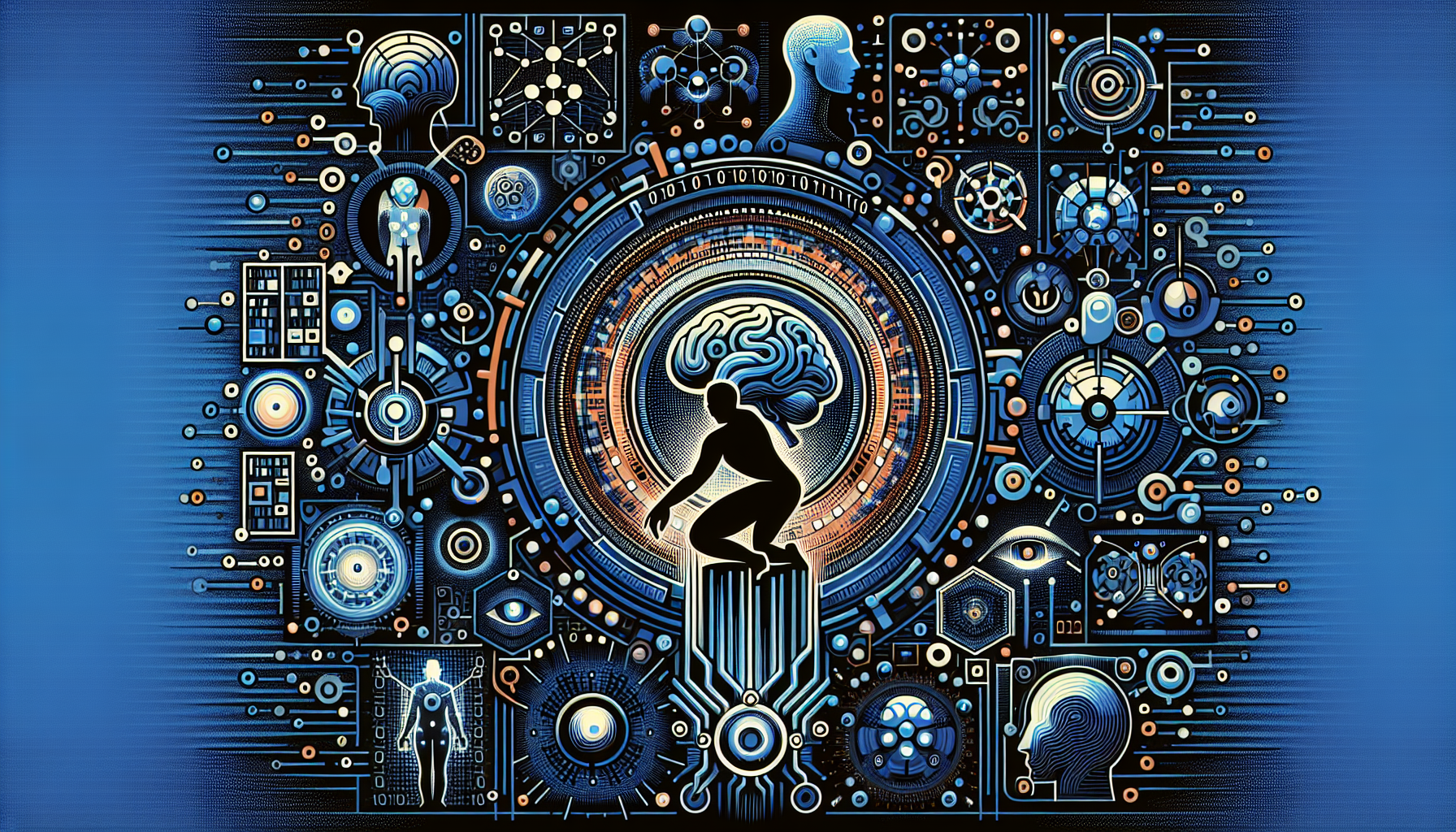Have you ever wondered if learning AI and machine learning is worth it? In today’s fast-paced world, where technology is advancing at an exponential rate, the demand for skilled professionals in these fields is soaring. The opportunities that await those who possess knowledge and expertise in AI and machine learning are vast and potentially lucrative. Whether you aspire to work in industries such as healthcare, finance, or even entertainment, adding AI and machine learning to your skillset could open doors to a world of possibilities. So, grab hold of this captivating article and discover whether investing your time and efforts in learning AI and machine learning is truly worth it.
Understanding AI and Machine Learning
What is Artificial Intelligence (AI)?
Artificial Intelligence (AI) refers to the ability of machines or computer systems to perform tasks that typically require human intelligence. It involves the development of computer programs that can analyze and interpret data, make decisions, and learn from experience. AI can be categorized into two types: narrow or weak AI, which is designed to perform specific tasks, and general or strong AI, which has the potential to understand, reason, and learn across a wide range of domains.
What is Machine Learning?
Machine Learning is a subset of AI that focuses on the development of algorithms and models that enable computers to learn and make predictions or decisions without being explicitly programmed. Instead of following a static set of instructions, machine learning systems use data to learn patterns and adjust their behavior accordingly. There are various types of machine learning, including supervised learning, unsupervised learning, and reinforcement learning, each with its own strengths and applications.
How AI and Machine Learning are related?
AI and Machine Learning are closely related as Machine Learning is one of the key techniques used in the development of AI systems. Machine Learning provides the ability for AI systems to learn from data and improve their performance over time. In other words, Machine Learning is a tool or method used to achieve the broader goal of developing intelligent systems. AI encompasses a broader scope, including areas such as robotics, natural language processing, expert systems, and computer vision, while Machine Learning focuses specifically on the development of algorithms and models.
The Importance of AI and Machine Learning
AI and Machine Learning in Data Analysis
One of the major applications of AI and Machine Learning is in data analysis. With the increasing volume and complexity of data generated by businesses and organizations, traditional methods of data analysis have become insufficient to derive valuable insights. AI and Machine Learning techniques enable organizations to leverage their data to identify patterns, trends, and correlations that can inform decision-making, improve efficiency, and drive innovation.
AI and Machine Learning in Automation
AI and Machine Learning have significant implications for automation. By utilizing algorithms and models that can learn and adapt, machines and systems can perform tasks that would otherwise require human intervention. This has the potential to streamline processes, increase productivity, and reduce costs. From autonomous vehicles to smart home systems, AI and Machine Learning play a crucial role in enabling automation across various industries.
AI and Machine Learning in Personalization
Personalization is becoming increasingly important in industries such as marketing, retail, and entertainment. AI and Machine Learning algorithms can analyze user data, preferences, and behavior to deliver personalized recommendations, advertisements, and user experiences. This not only enhances customer satisfaction but also increases engagement and drives revenue for businesses.
AI and Machine Learning in Healthcare
AI and Machine Learning have significant potential to revolutionize the healthcare industry. From diagnosing diseases and predicting patient outcomes to developing personalized treatment plans and improving medical imaging, AI can assist healthcare professionals in providing more accurate and efficient care. Machine Learning algorithms can analyze vast amounts of patient data and medical literature to identify patterns and insights that can inform medical decision-making.
AI and Machine Learning in Finance
The finance industry can benefit greatly from AI and Machine Learning. These technologies can automate financial processes, detect fraudulent activities, provide personalized financial advice, and optimize investment strategies. AI-powered chatbots and virtual assistants can also enhance customer service in banking and insurance, improving the overall customer experience.
AI and Machine Learning in Manufacturing
In the manufacturing sector, AI and Machine Learning can improve production processes, optimize supply chain management, and enhance quality control. Machine Learning algorithms can analyze sensor data from machines to identify patterns that indicate potential failures or maintenance needs, enabling proactive maintenance and reducing downtime. AI-powered robots and automation systems can also perform complex tasks with precision and efficiency.
AI and Machine Learning in Customer Service
Customer service is another area where AI and Machine Learning are making significant advancements. Chatbots and virtual assistants powered by AI can handle customer queries, provide recommendations, and resolve issues in a timely manner. Natural language processing and sentiment analysis algorithms enable these systems to understand and respond to customer inquiries effectively, improving customer satisfaction and saving businesses time and resources.
AI and Machine Learning in Cybersecurity
Cybersecurity is a growing concern in today’s digital landscape. AI and Machine Learning can help identify and respond to security threats in real-time. These technologies can analyze network traffic, identify abnormal patterns or behaviors, and detect potential vulnerabilities. By automating threat detection and response, AI and Machine Learning systems can significantly enhance cybersecurity defenses and protect sensitive data.

Career Opportunities in AI and Machine Learning
Demand for AI and Machine Learning Skills
The demand for professionals with AI and Machine Learning skills is skyrocketing. As organizations across industries recognize the potential of these technologies, the need for individuals who can develop, implement, and manage AI and Machine Learning systems continues to grow. From tech giants to startups, companies are actively hiring data scientists, machine learning engineers, and AI specialists to drive innovation and gain a competitive edge.
High-Paying Jobs in AI and Machine Learning
AI and Machine Learning careers offer lucrative opportunities for individuals with the right skills and expertise. Roles such as data scientists, machine learning engineers, and AI researchers are among the highest-paying jobs in the tech industry. With the rise of AI startups and the increasing integration of AI into various industries, professionals in this field can expect rewarding career paths and competitive salaries.
Opportunities for Innovation and Entrepreneurship
AI and Machine Learning offer immense potential for innovation and entrepreneurship. As technology continues to advance, there are countless untapped opportunities to develop groundbreaking AI applications and solutions. Whether it’s developing AI-powered chatbots, creating predictive analytics platforms, or designing autonomous systems, aspiring entrepreneurs have the chance to make a meaningful impact and shape the future with AI and Machine Learning.
Challenges and Considerations
Ethical Concerns
As AI and Machine Learning become more pervasive, ethical concerns arise. Questions about transparency, accountability, and biases in AI systems need to be addressed. Ensuring that AI systems are fair, unbiased, and do not perpetuate existing inequalities is crucial. Ethical considerations such as privacy, security, and the responsible use of AI and Machine Learning technologies should guide their development and deployment.
Data Privacy and Security
The increasing use of AI and Machine Learning relies heavily on data, often collected from individuals. Safeguarding this data and protecting individual privacy is essential. Organizations need to implement robust data privacy and security measures to prevent unauthorized access or misuse of sensitive information. Employing encryption, anonymization techniques, and secure data storage practices is essential to maintain trust and protect against potential breaches.
Continual Learning and Skill Development
AI and Machine Learning are rapidly evolving fields. As technology advances and new techniques emerge, professionals in these fields need to continually update their skills and knowledge. Staying abreast of the latest developments through continuous learning, attending workshops, and participating in professional networks is crucial to remain competitive and deliver cutting-edge solutions.
Integration with Existing Systems
Integrating AI and Machine Learning systems into existing infrastructure can be challenging. Legacy systems may not be compatible with the requirements of AI technologies, necessitating extensive modifications or even complete system overhauls. Ensuring seamless integration, scalability, and interoperability with existing systems is essential to maximize the value and impact of AI and Machine Learning implementations.
Bias and Fairness in AI Systems
AI systems are only as unbiased as the data they are trained on. If biased or incomplete data is used to train AI models, the resulting systems can perpetuate that bias, leading to unfair outcomes. Addressing bias and ensuring fairness in AI decision-making requires careful data selection, ongoing monitoring, and evaluation of AI models. By promoting diversity and inclusivity in AI development teams and considering a wide range of perspectives, biases can be mitigated, and fairness can be prioritized.

Developing Skills in AI and Machine Learning
Mathematics and Statistics
A solid foundation in mathematics and statistics is essential for understanding and applying AI and Machine Learning algorithms. Concepts such as linear algebra, calculus, probability, and statistics provide the basis for developing and tuning models, analyzing data, and evaluating performance. Strengthening these mathematical skills will pave the way for mastering advanced AI and Machine Learning techniques.
Programming Languages and Tools
Proficiency in programming languages such as Python or R is crucial in AI and Machine Learning. These languages are widely used for developing algorithms, manipulating data, and building models. Familiarity with libraries and frameworks like TensorFlow, scikit-learn, and PyTorch can also expedite the development process and facilitate experimentation with different models and techniques.
Understanding Algorithms
AI and Machine Learning involve a variety of algorithms, each with its own characteristics and applications. Understanding the underlying principles and concepts of these algorithms is essential for selecting the appropriate approach for a given problem, optimizing performance, and interpreting model outputs. Decision trees, neural networks, support vector machines, and clustering algorithms are just a few examples of algorithms commonly used in AI and Machine Learning.
Data Handling and Preprocessing
Working with data is a fundamental aspect of AI and Machine Learning. Acquiring, cleaning, transforming, and preprocessing data are necessary steps before building models. Familiarity with techniques such as feature engineering, data normalization, handling missing values, and dealing with imbalanced datasets is essential for ensuring the quality and usability of data in AI and Machine Learning workflows.
Model Selection and Evaluation
Choosing the right model for a given problem and effectively evaluating its performance are critical skills in AI and Machine Learning. Familiarity with techniques such as cross-validation, regularization, hyperparameter tuning, and model selection metrics enables data scientists and machine learning engineers to identify the most suitable models and fine-tune them to achieve the desired results. Robust evaluation and validation procedures ensure that AI systems perform optimally and reliably.
Steps to Learn AI and Machine Learning
Get Familiar with the Basics
Start by gaining a solid understanding of the fundamentals of AI and Machine Learning. Familiarize yourself with the concepts, algorithms, and techniques used in these fields. Online resources, tutorials, and introductory courses can provide a good starting point for building a strong foundation.
Take Online Courses or Attend Workshops
Enroll in online courses or attend workshops specifically designed to teach AI and Machine Learning skills. Platforms like Coursera, edX, and Udemy offer comprehensive courses taught by industry experts and leading academics. These courses typically provide hands-on exercises and projects to enhance practical skills and understanding.
Practice with Real-World Data
Apply your knowledge to real-world datasets to gain practical experience. Practice data preprocessing, feature engineering, model building, and evaluation techniques on diverse datasets. This will help you understand the challenges and nuances of working with real data and develop problem-solving skills.
Participate in Kaggle Competitions
Kaggle is an online platform that hosts data science competitions. Participating in Kaggle competitions allows you to solve complex problems and learn from the broader community. It provides an opportunity to apply your skills, collaborate with other data scientists, and gain valuable insights from seasoned practitioners.
Join AI and Machine Learning Communities
Engage with AI and Machine Learning communities to expand your knowledge, network with professionals, and stay up-to-date with the latest developments. Join online forums, attend meetups, and participate in hackathons. Surrounding yourself with like-minded individuals will foster learning, collaboration, and exposure to diverse perspectives.
Resources for Learning AI and Machine Learning
Online Courses and Tutorials
- Coursera: Offers a variety of AI and Machine Learning courses, including Stanford University’s “Machine Learning” by Andrew Ng.
- edX: Provides courses from reputable institutions like Harvard and MIT, such as “Deep Learning” and “Practical Data Science”.
- Udemy: Offers a wide range of AI and Machine Learning courses at different skill levels, with options for hands-on projects and practical application.
Books and Publications
- “Hands-On Machine Learning with Scikit-Learn, Keras, and TensorFlow” by Aurélien Géron: A practical guide to building end-to-end machine learning models.
- “Pattern Recognition and Machine Learning” by Christopher M. Bishop: Provides a comprehensive introduction to pattern recognition and machine learning techniques.
- “The Hundred-Page Machine Learning Book” by Andriy Burkov: A concise guide that covers key concepts and algorithms in machine learning.
Open-Source Libraries and Frameworks
- TensorFlow: A popular open-source library for building and deploying machine learning models, developed by Google.
- scikit-learn: A versatile library that provides a wide range of machine learning algorithms and tools for data analysis.
- PyTorch: A flexible and dynamic deep learning framework that supports dynamic computational graphs and allows for rapid prototyping.
AI and Machine Learning Conferences
- NeurIPS (Conference on Neural Information Processing Systems): One of the largest conferences in AI and Machine Learning, featuring cutting-edge research and industry advancements.
- ICML (International Conference on Machine Learning): A leading conference in machine learning, covering various topics such as deep learning, reinforcement learning, and natural language processing.
- AAAI (Association for the Advancement of Artificial Intelligence): A conference that showcases advances in AI research and applications across different domains.
Online Communities and Forums
- Kaggle: A platform for data science competitions, hosting a vibrant community of data scientists and machine learning practitioners.
- Stack Overflow: An online community where users can ask and answer questions on various programming and AI-related topics.
- Reddit’s r/MachineLearning: A popular subreddit dedicated to discussions, news, and resources related to machine learning.
Conclusion
In conclusion, learning AI and Machine Learning is definitely worth it in today’s rapidly evolving technological landscape. These technologies have the potential to transform industries, improve efficiency, and drive innovation. Understanding AI and Machine Learning concepts, applications, and challenges opens up a world of career opportunities in high-demand fields. By developing the necessary skills, staying abreast of advancements, and actively engaging with the AI and Machine Learning community, individuals can position themselves at the forefront of this exciting and promising field.
